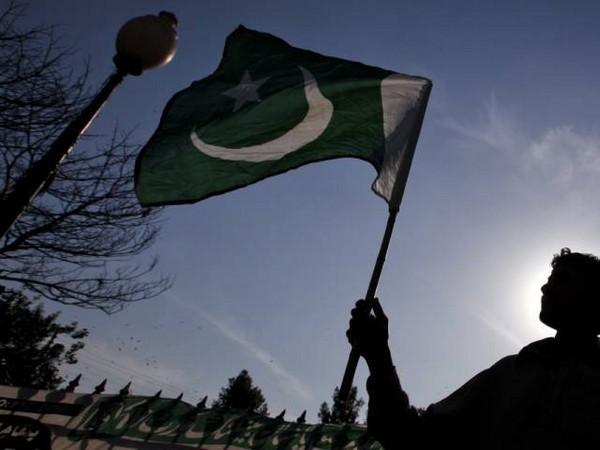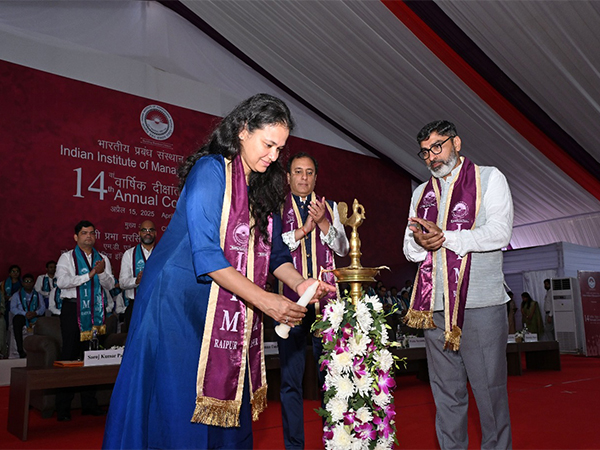Russian rocket launches Iranian satellite from Kazakhstan base
Aug 10, 2022

Tehran [Iran], August 10 : Russia on Tuesday launched an Iranian satellite into orbit, as Moscow and Tehran seek to build closer ties in the face of Western sanctions.
The remote sensing satellite called "Khayyam" was launched by a Russian Soyuz rocket from the Baikonur Cosmodrome, the main base for Russian space launches located in southern Kazakhstan, at 8:52 a.m. Moscow time (5:52 a.m. GMT) on Tuesday, as per a live video broadcast by Russia's Roscosmos space agency on YouTube.
The Iranian Space Agency (ISA) rejected the claims that the satellite could be used by Russia to boost its intelligence capabilities in Ukraine and said that it will have exclusive control over the satellite "from day one", and Russia's Roscosmos, Al Jazeera reported.
Earlier this month, The Washington Post reported that Russia plans to use the satellite "for months or longer" to assist its war efforts in Ukraine, citing anonymous Western intelligence officials as saying.
The report stated that US officials are concerned by the fledgling space cooperation between Russia and Iran, fearing the satellite will not only help Russia in Ukraine but also provide Iran "unprecedented capabilities" to monitor potential military targets in Israel and the wider Middle East.
ISA said that the orders transmitted to the satellite and data received from it will be encrypted and controlled by a team of Iranian engineers and scientists in Iran, and "no other country has access to the information throughout this process".
The agency also emphasised that images from Khayyam, which are expected to come with a resolution of one metre, will be used to bolster "management and planning capacities" in a variety of industries such as agriculture, natural resources, environment, water resources, mining, disaster management, in addition to border monitoring.
ISA said that the satellite is designed for scientific research, including radiation and environmental monitoring for agricultural purposes.
According to the state-run news agency IRNA, Iran has the capability to build remote-sensing satellites with an image resolution of 5-10 metres (16.4-32.8 feet) and can inject up to 50kg (110pounds) packages into an orbit of 500km (311 miles).
But the Khayyam - named after 11th-century Persian polymath Omar Khayyam - which was commissioned by Iran and built by Russia, can hit a much more precise resolution of 1 metre (3.3 feet) and is to operate at the 500km orbit while weighing about 600kg (1,322 pounds), Al Jazeera reported.
"This is the start of a strategic cooperation between Iran and Russia in the space industry," Iran's ICT Minister Issa Zarepour said in a video on Monday while standing in front of the rocket in Baikonur, adding that Iran aims to achieve the technology to put a 100kg satellite into the 500km orbit by next year.
Iran has also stressed that the country's military space programme is separate, with the ISA saying, "the country's defence forces will pursue their own exclusive paths technically and strategically to account for their own needs".
The Islamic Revolutionary Guard Corps (IRGC) has launched two satellites into space so far, with the second launch taking place in March.
The elite forces' aerospace chief, Amirali Hajizadeh, announced last month that the IRGC plans to launch another satellite into orbit before the end of the current Iranian year in March 2023.
In June, Iran's defence ministry test-launched a satellite vehicle that it said was for research purposes, Al Jazeera reported.
Iran said that its military space programme is for defence purposes only and poses no threat to others.
Iran has maintained that its military space programme is for defence purposes only and poses no threat to others, but Western officials have expressed concern, saying the same technology can be used to carry nuclear warheads.
The launch comes just three weeks after Russian President Vladimir Putin visited Tehran to discuss with the Iranian side bilateral cooperation and ways to solve the impasse on the Iran nuclear talks.
Lavrov, at the invitation of Iranian Foreign Minister Hossein Amir-Abdollahian, arrived in Tehran and held a meeting with Iranian President Ebrahim Raisi and Iranian supreme leader Ayatollah Ali Khamenei.
Having not revealed any details of the meeting, the state-run television had said that "Lavrov is expected to meet Iran's senior officials to discuss the negotiation that aims to restore a 2015 nuclear deal between Iran and world powers."
Both Iran and Russia are subject to strict US sanctions, which have restricted their ability to transport their energy to international markets.
Iran signed the nuclear deal, formally known as the Joint Comprehensive Plan of Action (JCPOA), with the world powers in July 2015 accepting to put some curbs on its nuclear program in return for the removal of the sanctions on Tehran.
However, former President Donald Trump pulled the United States out of the agreement in May 2018 and reimposed Washington's unilateral sanctions on Tehran, prompting Iran to reduce some of its nuclear commitments under the agreement in retaliation.




















